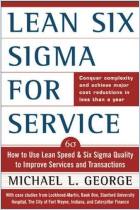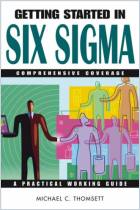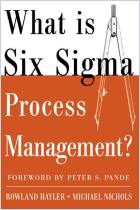John H. Fleming and Jim Asplund make a convincing case for building quality into your employee-customer relationships. Their method parallels the way that Six Sigma emphasizes increasing quality by controlling defects in your manufacturing process. The authors – who generously explain a great deal about their program, but who also make the value of their consultancy’s services and research quite clear – show that it is backward to try to enhance your customer interface by eliminating human contact. Instead, warm up that connection by teaching workers properly, assessing results and rewarding people who get it right. getAbstract recommends this solid guide to using measuring, training and nurturing to boost your customer-employee relationships.
Causing Quality
Six Sigma has had a profound impact on how companies build quality into their processes and products. Its demand for “zero defects” has lowered manufacturing costs, while increasing customer satisfaction. However, customer service performance needs a similar tune-up.
As today’s managers strive to eliminate the variability that human behavior adds to customer service, they have resorted to chaining frontline people to scripts or removing them from customer contact altogether. Executives often admit that they don’t trust their employees with their customers. This is the “Terminator school of management.” As in the Terminator movies, these managers seem to want to eliminate people wherever they find them. What does that do to your company’s heart? Turn instead to “HumanSigma,” a way to manage your employee-customer relationships by eliminating errors, focusing on outcomes and fostering human interaction.
Many businesses have a “just don’t” attitude – as in, just don’t mess up – in their approach to sales and service. They strive to standardize customer interactions. Sadly, they end up managing the steps in the process rather...
Psychologist John H. Fleming, Ph.D., and Jim Asplund are principals and chief scientists at a research and consulting firm that specializes in customer engagement, HumanSigma and strength-based development.



















Comment on this summary